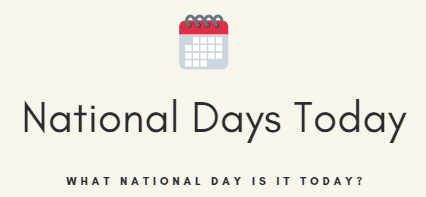Word Nerd Day
Word Nerd Day:
“Word Nerd Day” honours language and words on January 9th EveryYear. There are no records of this event, thus it’s unknown where it came from. Today aims to motivate people to use dictionaries, learn a few new words, and start using those words in regular speech.
| Year | Date | Day | Where |
| 2023 | 9th January | Tuesday | United States |
| 2025 | 9th January | Thursday | United States |
| 2025 | 9th January | Friday | United States |
Why Word Nerd Day?
The purpose of this day is to highlight the value of language and words in English culture. Please take this into account. Language is essentially the operating system that operates on our brains, which are really living, breathing computers. Giving our concepts form makes it easier to communicate with others.
Through word games, word learning, exercises that help us increase the plasticity of our brains so they can utilise words in novel and inventive ways, and other activities, this holiday also gives us the chance to improve our mental health.
An excursion is a great method to practise your terminology skills and learn more while having fun. In order to cultivate a lifelong love of learning and curiosity, children’s participation is also encouraged. Find ways to incorporate new, obscure terms into your vocabulary after going out and gathering them.
How Can We Observe Word Nerd Day:
- Take part in a vocabulary contest.
Word Nerd Day is a simple holiday to observe. All you need to do is take part in the vocabulary contest. On this day, you are encouraged to showcase your knowledge. Show off your understanding of those words by doing so in front of other people.
- Obtain your dictionary.
Take out your dictionary and start learning two new words each day if you enjoy learning sophisticated, technical jargon. You can download different dictionary apps on your smartphone and learn a daily list of new terms if you don’t have time to pick up a dictionary.
- Play These Pleasant Word Games!
A new crossword puzzle book, a word search, or the installation of a smartphone app that incorporates word games would all be excellent ways to have some word fun today. Word jumbles, fill-ins, spelling bees, and countless other games can be a load of fun.
- Share on social media.
Another method to commemorate this day is to hold a vocabulary competition at your house. It will be a pleasant day if you invite your friends and acquaintances to participate in this contest. Use the hashtags #WordNerdDay to post various words you are familiar with on social media.
Interesting Facts About Word Nerd Day:
- Over 4,000 new words, or one every two hours, are added to the English language dictionary each year.
- The word “I” is the first one we use to describe who we are, thus it stands to reason that it is also one of the most traditional and frequently used words in communication.
- Since pangrams make use of every letter in the English alphabet, you likely came across them while honing your handwriting. Examples consist of the proverb “The quick brown fox jumps over the lazy dog” and the proverb “The five boxing wizards jump quickly.”
- You may encounter pangrams—sentences that use every letter of the English alphabet—while practising your handwriting.
- The term doesn’t change whether it is read forward or backward. Racecar, kayak, and even adverbs like “never odd or even” are a few examples of often occurring palindromes.
History:
“Word Nerd Day” celebrates words and language. Every year on January 9, people celebrate this occasion, however there is no evidence of when or who originally observed it, hence it is unclear where this festival initially began. Participants are instructed to use a thesaurus or dictionary as they attempt to learn new terms and utilise them in conversation. It might be entertaining to celebrate by working on crossword puzzles and other word problems on your own, with loved ones, or both.
Most historians agree that writing began approximately 5,500 years ago in Mesopotamia, which is now known as modern-day Iraq. These started out as straightforward graphical representations and later developed into a sophisticated symbol system that represented the sounds of languages like Sumerian. Using reed styluses, these “symbols” were inscribed onto wet clay tablets circa 2,900 BC. Writing would definitely advance during the coming several centuries on other continents, including Asia and Mesoamerica.
In the Middle Ages, reading and writing in a sophisticated way was considered an indulgence, and only those who were wealthy or in favour could do so. Because of this, most people can only truly enjoy oral communication. In an effort to enthral theatregoers, literary titans like Shakespeare and others created new terms for their works.
However, more individuals had access to reading and writing by the middle of the eighteenth century since they were being taught more fully. It is necessary to build a comprehensive list of words and definitions in the English language as a result. For his work on this study, Dr. Samuel Johnson received 1,500 guineas (about $325,000 in today’s money). With the 1755 release of his lexicon, now recognised as one of the most important works in the English language, he successfully ended his seven-year struggle.
Words are the primary units of language. The precise timing and location of language’s evolution are unknown because they were unable to document it at the time. The discussion of language’s linguistic past was outlawed completely in 1866 by the Linguistic Society of Paris. Because historians had such strong opinions about the matter, this occurred. Even more recently, there have been many contentious disagreements between researchers.

